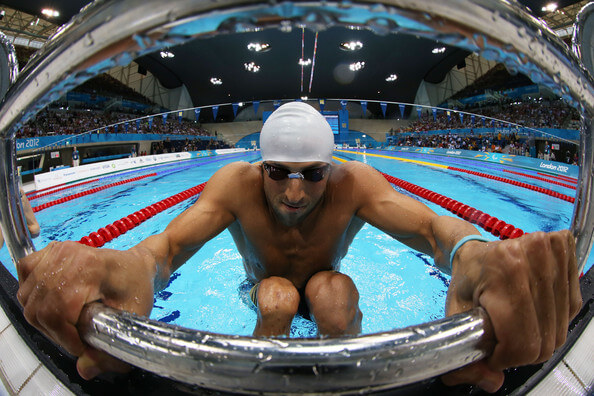Against the Odds: How St. Catherine University Coach Justin Zook Became a Paralympic Champion

Against the Odds: How St. Catherine University Coach Justin Zook Became a Paralympic Champion
St. Catherine University (Minn.) swim coach Justin Zook is a study in overcoming adversity. He was born in Chicago in 1985 missing half his right foot and with non-functioning right leg growth plates. Thirty operations lengthened the leg, but caused nerve damage, muscle weakness, range of motion problems and a lifetime of pain. As a form of therapy, and a way of life, he started swimming at age 6.
As a youngster, Justin Zook was a very accomplished age grouper, beating fully-abled athletes even into his college years. There he competed for Springfield College (Mass.), was a member of the school’s 2005 New England Women’s and Men’s Athletic Conference (NEWMAC) championship squad and an NCAA qualifier. Along the way, he discovered swimming for the disabled, becoming a three-time S10-class Paralympic gold medalist in 2004, 2008 and 2012 and a three-time world champion (2002, 2006, 2013) in the 100 meter backstroke. He was also S10 world champion and one-time world record holder in the 200 back.
“Swimming has been a guiding force in my life since age 7 or 8,” says Zook. “I always used it as a bit of a compass for my direction in life. Swimming helped me learn an important perspective: Life is not fair. My parents say I was not a ‘Why me?’ child. Accepting physical difficulty was just a way of life for me. From all my surgeries, I gained a unique perspective and became truly grateful for the things many kids don’t think twice about.
“Some kids remember hearing the story of when they first walked. My parents have 15—when I first walked, re-learned and re-learned how to walk. I give credit to them for helping foster an environment where the things I could do were celebrated. They made sure when there was something I could do within my physical limitations that I was encouraged to try, even if it meant ending up in pain afterward.
“My mom still cries thinking of me trying to ice skate. We had a pond across the street. I convinced my parents to let me get skates and try to skate across. I spent hours moving an inch and falling repeatedly onto my right leg. I eventually got across, experiencing excruciating pain and bruising to the point where I could barely walk. My parents allowed me to explore my limits and live with the consequences. That experience set me on a lifelong path discovering how to navigate and explore life’s path, given my limitations.
“I never thought much about how to define myself as an athlete,” says Zook. “For the first 16 years of my swimming career, I considered myself an athlete on whatever team I was representing, but rarely looked at anything differently due to my disability and/or Paralympic swimming involvement. After my collegiate career, I was no longer swimming able-bodied meets—but mainly in Paralympic competitions. At that point, I had come to accept myself as a Paralympic athlete.”



